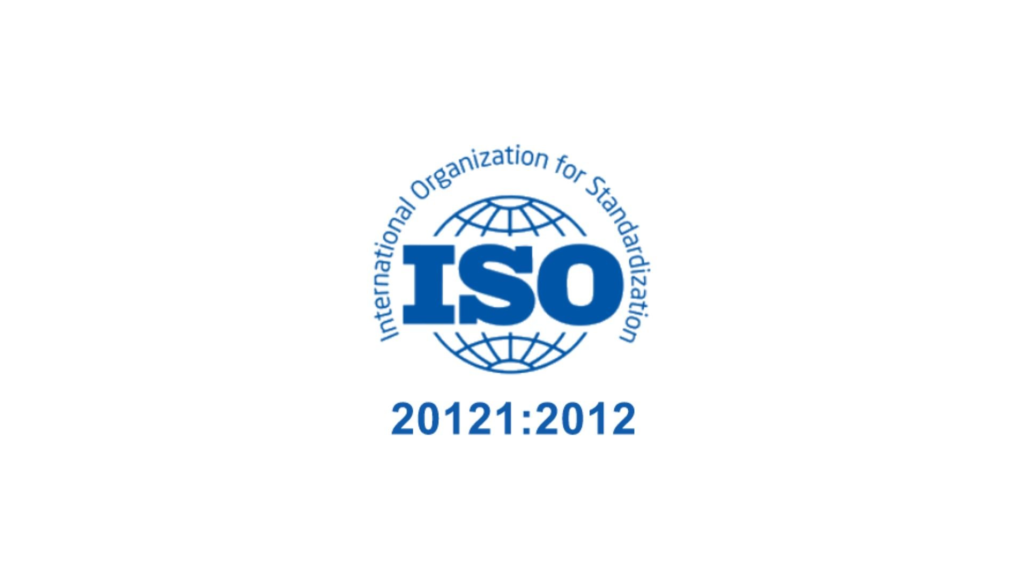By Enovation Consulting
The popularity of sports and increased spectatorship has resulted in the organization of much larger events to accommodate and capitalize on this growth. Thanks to their size and the scope to make events more entertaining by offering added amenities and extra activities, sporting events have a significant environmental impact and social influence. For instance, a 2020 report found that the sport industry was responsible for 350 million tCO2e, whilst the BBC noted that the 2022 Qatar World Cup had a footprint of 3.6 tCO2e. Innovative and effective solutions for sustainable event management that minimize negative impacts and maximize opportunities for positive change are therefore essential as sport continues to make progress towards operating sustainably.

ISO Certifications
Managing the impact of sports events can be complex with the involvement of numerous stakeholders facing a variety of sustainability challenges. The areas of impact related to sports events are vast, including factors such as transport, energy use, accessibility, materials, resource consumption, and waste generation. Once specific impacts are understood, it is critical that they are benchmarked and measured in order to highlight opportunities for improvement and encourage progress.
International Organization for Standardization (ISO) certifications are an impactful way to understand if an event has been hosted with sustainability best practice in mind. The most relevant is the ISO 20121 that covers sustainable event management. ISO 20121 certified events address the economic, environmental, and societal impact of the event. The use of the ISO 20121 standard provides organizers with a practical tool to maximize the impact of the event across these three pillars.

image: Rico Reynaldo
Formula E
Formula E, a sport developed with sustainability at its core, demonstrates best practice not only through the technology related to the cars, but also through their events. The championship was the first racing series to achieve the ISO 20121 certification in 2020, which focuses on the sustainable operation of events of all sizes. Some examples of their efforts are the provision of reusable and recyclable water pouches for free to all staff and spectators, and waste management initiatives such as the “Recycling Rangers”, and its partnership with CSM Live to reduce the amount of waste generated and reuse as much branding and infrastructure as many times during the season as possible. These examples show how the sport goes above and beyond to maximize the positive impact it has on the environment and wider society while providing guidance for other sports organizations to follow suit.
The eSkootr Championship
The eSkootr championship, which has been carbon neutral since inception, also offers a best practice example of a sport organization that has made an impressive effort to ensure that events are managed more sustainably. It was established that all stakeholders involved in an event record their emissions and follow guidelines for the delivery of a sustainable event, as set out in the championship’s sustainability code. The venue for the London race was ISO 14001 certified and was powered by renewable energy. Visitors to the venue were encouraged to travel by public transport, waste management solutions and recycling initiatives were put into place, and a ‘no single-use plastic’ policy was implemented. eSkootr also partnered with a local charity, Global Generation, which works to create urban gardens as neighbourhood meeting points.

image: Lorenzo Berti
Best practice among motorsport circuits
Another best practice example is offered by motorsports circuits such as Mugello Circuit, Circuit de Barcelona – Catalunya, and Silverstone, demonstrating how venues themselves can manage their own impact. These circuits have achieved FIA 3 Star Environmental Accreditation and ISO 14001 certification for their Environmental Management System’s (EMS). In 2022, Silverstone launched its Motorsport UK Environmental Award winning “Shift to Zero” sustainability strategy and became the world’s first motor racing venue signatory of the UNFCCC Sports for Climate Action Framework. Silverstone’s focus on sustainability saw it achieve its first podium position in the latest Sustainable Circuits Index™ (SCI™), while Mugello Circuit and Circuit de Barcelona – Catalunya maintained their first and second places respectively for the comprehensive performance across a range of sustainability categories.
Whether it be local, small-scale events or the world’s largest mega-events like the Olympics, organizations and governing bodies across the entire industry have begun to recognize the need to prioritize sustainability in sport events. While governing bodies and event organizers have a responsibility to initiate change, it is not exclusive as teams and suppliers must also manage their own impact, especially as Scope 3 emissions tend to dominate Scope 1 and Scope 2 emissions. As a collective, if stakeholders involved in the running of sports events worked towards reducing their individual emissions, the positive impact of these events on the environment and local communities would be multiplied and sustained for the future of the respective sport.
Establishing a Framework for Sustainable Event Management in Sport
By Enovation Consulting The popularity of sports and increased spectatorship has resulted in the organization of much larger events to accommodate and capitalize on this growth. Thanks to their size and the scope to make events more entertaining by offering added amenities and extra activities, sporting events have a significant environmental impact and social influence. For instance, a 2020 report found that the sport industry was responsible for 350 million tCO2e, whilst the BBC noted that the 2022 Qatar World Cup



